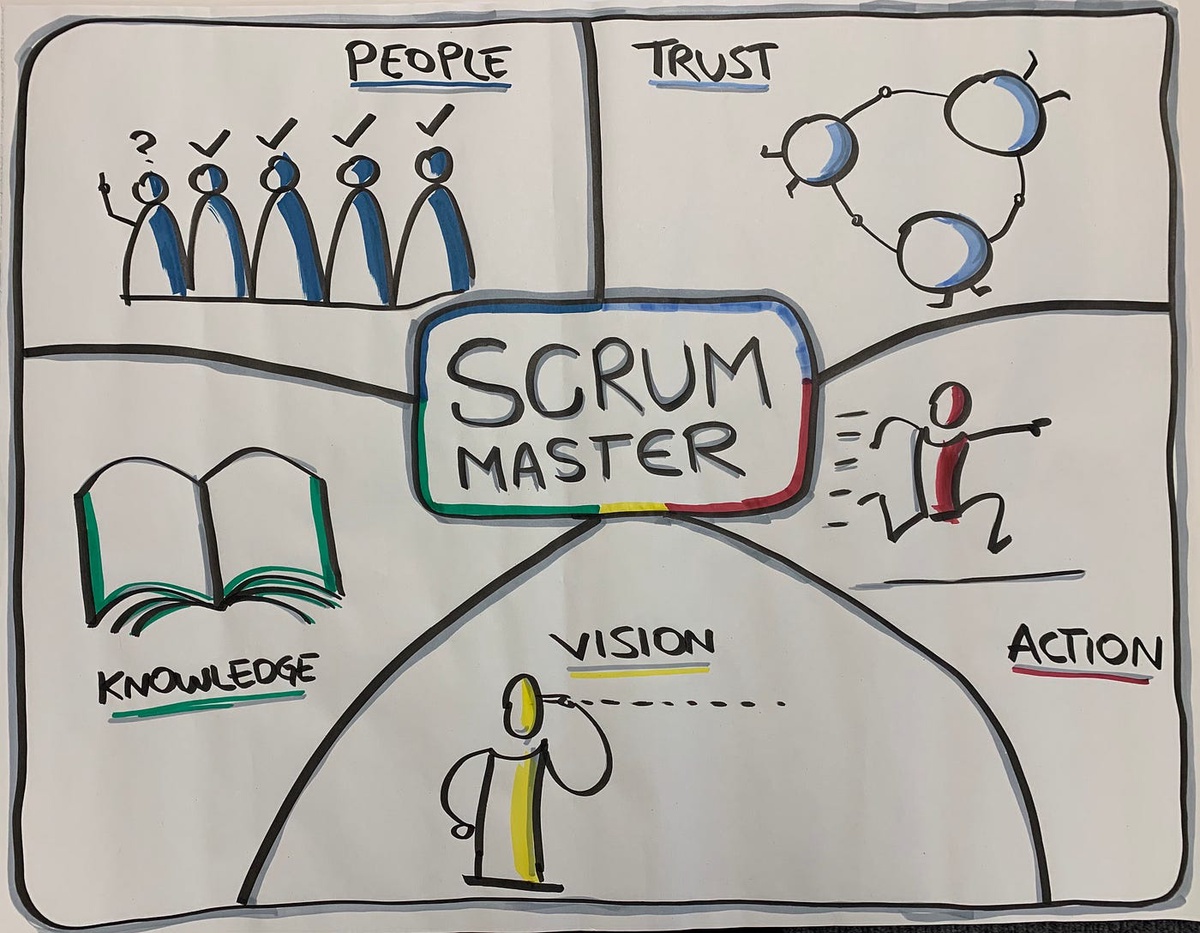An Agile Scrum Master is a person who works within the Agile Scrum framework, a well-liked method of managing software development projects. Along with helping to remove any barriers or hindrances that might be keeping the team from achieving its objectives, the Scrum Master is in charge of making sure the team adheres to the Scrum methodology.
The Agile Scrum Master Certification acts as a facilitator for the team, helping to organize and coordinate their work, and ensuring that they are working collaboratively and effectively. They also help the team to identify and implement improvements to their processes, and to continuously learn and adapt based on feedback and experience.
Following are the skills that are indeed valuable for individuals pursuing an Agile Scrum Master Certification. Let's briefly discuss each one:

Strong Knowledge of Agile Principles and the Scrum Framework: Understanding the foundational principles of Agile and being well-versed in the Scrum framework is crucial for effective Scrum Mastering.
Effective Communication and Collaboration: The Scrum Master serves as a bridge between the team, stakeholders, and the product owner. Excellent communication skills are vital for ensuring everyone is on the same page and collaboration is seamless.
Leadership and Coaching Skills: As a Scrum Master, you are a leader and coach for the team. You guide them in adopting Agile practices and overcoming challenges.
Problem-solving and Conflict Resolution: Being adept at identifying and addressing issues within the team or with stakeholders is essential. This skill helps maintain a healthy and productive work environment.
Facilitation and Meeting Management: The Scrum Master is responsible for facilitating Scrum events and ensuring they are productive. This requires strong facilitation skills and the ability to manage meetings effectively.
Technical Knowledge: While not always mandatory, having a basic understanding of the technical aspects can be beneficial, especially in environments where technical discussions are prevalent (e.g., software development).
Continuous Learning: The Agile landscape is constantly evolving. A willingness to stay updated with the latest Agile practices and trends is important for being an effective Scrum Master.
These skills collectively empower a Scrum Master to guide their team towards successful Agile implementations, promote collaboration, and facilitate continuous improvement. Remember, each of these skills can be honed and developed over time through training, practice, and experience.
You can also go for https://www.gsdcouncil.org/certified-agile-scrum-foundation
For more inquiry call: - +41 444851189


No comments yet